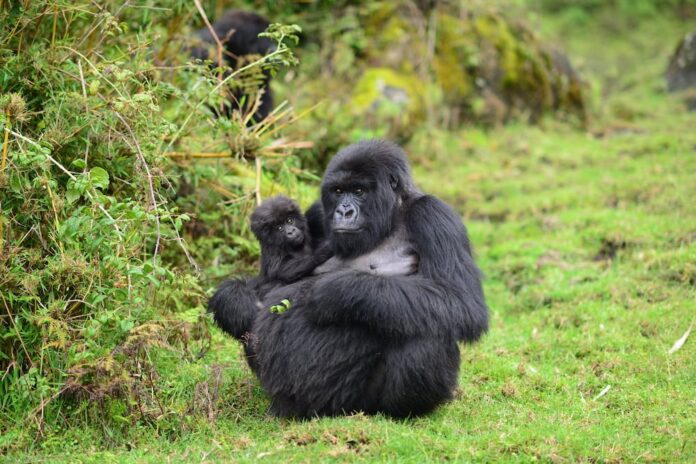Gorillas, chimpanzees and bonobos are found in 21 countries across tropical Africa and all are considered to be endangered or critically endangered. They also live in critical forests that are important to other biodiversity and that are one of our best natural defenses against climate change.
In addition to the threats posed by habitat loss, poaching and disease, climate change is of increasing concern as a conservation risk. A recent collaborative research project that included several Fossey Fund scientists examined 363 sites where apes live in Africa to estimate their past and future exposure to climate change, as well as to gather evidence on how these apes may be affected. The study provides detailed analyses across numerous ape sites through a database called A.P.E.S (Apes, Populations, Environment, and Survey). The A.P.E.S. database is managed by the International Union for Conservation of Nature and represents a huge collaborative effort where scientists share their data with the goal of supporting research on the conservation of great ape populations.
The new study, published in PLoS Climate, shows that all African ape sites have already experienced climate changes and will likely be increasingly exposed to continued temperature increases as well as extreme events in the future.
“Long-term research sites can play a significant role in investigating how sensitive animals are to climate change and integrating this knowledge into conservation action planning,” says Dr. Tara Stoinski, Fossey Fund president and CEO/chief scientist, who is attending Climate Week in New York City this month with leaders from around the world.

